The Argus Welcomes New Tenure-Track Faculty
This fall, the University welcomed a broad array of new tenure-track faculty members. The Argus discussed with these professors the paths that took them to Wesleyan, their current projects, and their lives outside the classroom.
Francesco Marco Aresu, Assistant Professor of Italian
The Argus: Who are some of your major influences or heroes in your field?
Marco Aresu: I work on medieval and early-modern literature: Influential personalities in my field very rarely make it to the news. I prefer to mention “heroes” at the intersection between academia and civil society. Next year is the anniversary of the 1966 flood of the Arno in Florence. Volunteers from around the world (the so-called Mud Angels) convened to Florence to clean the city from the mud, to retrieve books and work of arts from flooded rooms, and to rescue the traces of the past for the spiritual growth of future generations. Very peculiar heroes, indeed.
A: What’s one project you’re excited about right now?
MA: With a former colleague from Harvard University I am working on a recently re-discovered manuscript of Leon Battista Alberti, an Italian humanist of the 15th century. I am also working on my first book, which studies how different media (manuscripts, prints, kindle, etc.) affect the composition, circulation, and reception of the literary texts that they transmit.
A: What do you enjoy outside of the classroom? Any special talents or hobbies?
MA: I like to learn languages (I am in the process of picking the ninth language I will study). I work out every day. And I love me some good red wine. Not necessarily in this order.
Joseph Coolon, Assistant Professor of Biology
The Argus: What’s the most important thing for you about working with students?
Joseph Coolon: I really enjoy seeing the moment when things click for people. One of the things that’s really important to me is reaching students who may have never considered the subject that I’m teaching something that they might care about, or need to know, or be interested in.
A: What’s one project or idea that you’re really excited about?
JC: The research in my lab is generally focused on looking at how the DNA that different species contain allows different species to be different. Specifically, the work is looking at how changes in DNA influence these differences between species, not in terms of what products are being made by those genes, but by how those genes are turned on and turned off, and when, where, and how much of them are being made.
A: What do you enjoy outside the classroom?
JC: I quite enjoy running. I quite enjoy fishing. I like bike riding as well. So I guess a lot of more active outdoor sports.
Candice Etson, Assistant Professor of Physics
The Argus: What’s the most crucial part of teaching for you?
Candice Eston: There have been people who have taken time out of their lives to do something small that really made a big difference to me. It’s really critical in fields like science, where there are so many different paths, and it’s not always clear how you get from one place to another, that people take the time to tell you what your opportunities are. People really did that for me, and it made me want to give that back. And then in my own field, there are not a lot women or minorities, so I feel really lucky to have had the opportunities I had. I’d really like to be a part of letting those opportunities be available to more people….When you have people with different perspectives, who come from different places and different backgrounds, everything is better. It’s so much more interesting, you get such better work done, and amazing things can happen. I also just love teaching. I think the stuff I do is really cool, so I like to let other people know about that.
A: What is one research project or idea that you’re really excited about right now?
CE: I’m really excited about a project that I’m just now getting going. There are two major projects I’m working on. One is in the lab, and then I have this education research project I’m doing, which I’m actually not going to tell you too much about, because Wesleyan students are going to be the research subjects. I’m really excited to be doing science education research to try to find out how the way people think and do problem-solving is important for science education, and the goal of that is to make the way we teach physics better. I’m excited about that. Everyone at Wesleyan is really into it, and that’s been great.
A: You were a ballet dancer and you’re an artist. What connections have you found between science and art?
CE: In ballet, there’s this sort of approach, like a mindset, that you never really feel that anything you do is finished or perfect, so you just keep working on it. When you learn to be a ballet dancer, the first things you learn are pliés and tendus, and until the day you stop doing ballet, you will do pliés and tendus, and you will always try to make them better. And so that kind of approach, and that mindset, and that discipline, has always served me really well—that idea that you can always find something new, even in something really simple that you learned as a kid.
Anthony Hatch, Assistant Professor of Science in Society
Jeffrey Naecker, Assistant Professor of Economics
The Argus: What drew you to Wesleyan?
Jeff Naecker: The entire Economics Department at Wesleyan is incredibly impressive: producing well-published research while also teaching rigorous classes to extremely intellectual students. I’m honored to have a chance to work with everyone here. Wesleyan also reminds me a lot of my undergraduate time at Berkeley: smart, athletic, and socially engaged students on a purposefully inclusive and active campus.
A: What’s your favorite thing about teaching?
JN: Teaching is one of the most value-creating things we can do as human beings. It involves organizing a potentially very large set of knowledge into a form that students can digest, re-interpret, and ultimately pass on to others. That creation and transmission of information is exhilarating and rewarding.
A: What’s one project you’re excited about right now?
JN: Here’s a little mental experiment: Suppose I give you $10 and tell you that you can split it however you choose between two poor households in Kenya that I’ve identified. After you tell me how you’d like to allocate the money, I’ll flip a coin. If it’s heads, I’ll allocate as you asked. But if it’s tails, I’ll allocate differently: all $10 to household A and none to household B. So, how would you like to split the money?
Here’s the twist: Suppose that I’ve flipped the coin and I double-check your allocation with you before implementing it. Do you want to change your allocation?
In a paper I’m writing right now with several co-authors, we show in a series of experiments that many people choose $0 to A and $10 to B initially — they are offsetting the default allocation. But after the coin flip, they want to switch to to an equal split: $5 each. It turns out this behavior is hard to explain with standard economic theories. Put another way, we as economists are still learning about how people define fairness, and how the definition depends on the context and the timing of the decision.
Paula Park, Assistant Professor of Spanish
The Argus: Who are some of your major influences or heroes in your field?
Paula Park: Basing this question on my current research, I would say that four major heroes in my field are José Rizal, José Martí, Eugenio María de Hostos and Lola Rodríguez de Tió. They were all compromised intellectuals and proponents of the independence of their homelands (Philippines, Cuba and Puerto Rico), as well as active seekers of transnational unity against colonial powers.
A: What’s your favorite thing about teaching?
PP: When I look back at the courses I have taught in the past years in three universities, stories of all kinds come to mind. But ultimately the most rewarding memory is simple and yet abstract: having provided students with the opportunity to confront something new. My goal in the classroom is to enable students to discover new interests of their own through the study of Spanish language and Hispanic culture. Also, for me, human interaction is at the core of teaching and learning, so I really enjoy seeing my students collaborating with each other for assignments in class or even outside of class.
A: What’s one project you’re excited about right now?
PP: Right now am excited about two projects. On the one hand I look forward to being able to work on my first book project, which examines the influences of writers from Cuba, Puerto Rico and the Philippines after 1898, that is, right after they ceased to be connected through the logic of the Spanish empire and became subject to US expansionism. On the other hand, I am also excited about a more personal academic project. Born to Korean immigrants in Chile, I am interested in the cultural productions of diverse Asian diasporas throughout Latin America and the Hispanic Caribbean. I will offer a course that will cover this topic in the spring semester.
A: What do you enjoy outside of the classroom? Any special talents or hobbies?
PP: I like hiking or simply walking around cities, especially if it’s in good company. Since I’ve moved to Connecticut, I’ve enjoyed exploring Hartford. At home, I’m enjoying playing the piano again.
Michelle Personick, Assistant Professor of Chemistry
The Argus: What drew you to Wesleyan?
Michelle Personick: I’ve known that I wanted to teach at a small liberal arts college as long as I’ve known I wanted to be a professor. I went to a NESCAC school (Middlebury) myself as an undergrad and I think the small liberal arts college is a fantastic model for undergraduate education because it provides opportunities for faculty and students to actually get to know each other and for faculty to be able to take an active interest in students’ success. As a graduate student at a research university, I was responsible for a lecture with 350 students, and at that point it’s hard to reach out to individual students who might be struggling, unless they take the initiative and come to office hours.
Wesleyan was a particularly special opportunity for me as a scientist because of the strong research programs here at Wes. Having a small, but talented, group of graduate students in chemistry increases the quality and variety of scientific resources available to all students on campus, and means that I’m able to introduce undergrads to my area of research—metal nanomaterials—which is something I wouldn’t be able to do at a lot of other liberal arts schools.
A: Who are some of your major influences or heroes in your field?
MP: My biggest influences have generally been the people who have directly mentored me: a graduate student a year ahead of me in grad school, as well as my undergraduate, graduate, and postdoctoral advisors. It may not seem as exciting as the big “heroes” of the field, but those were the people I saw every day, doing science and being leaders in their areas. Those are the people you watch and think, “How do they do that?”—whether they’re conducting experiments, or coming up with ideas, or giving presentations. And then a younger scientist comes up to you sometime later and says the same thing to you, and you realize those people have been teaching you how all along.
A: What’s one project you’re excited about right now?
MP: One big exciting project for me right now is setting up my research lab and starting to do experiments. I have a brand new space that I’ve been stocking with shiny new glassware and supplies over the summer with help from a couple of research students. The lab has begun to be operational in the last few weeks and we’ve done some initial experiments, which is great. This fall we’ll be building a new piece of equipment and we’ll have some new students joining the research group so I’m excited to see where things are a few months from now.
A: What do you enjoy outside of the classroom or lab? Any special talents or hobbies?
MP: Before I came to Wesleyan, I was living in the Boston area and I trained and competed with a masters women’s rowing team. I loved being on the Charles River early in the morning and enjoyed getting to know a lot of awesome women who came from a wide range of backgrounds. I miss it, and I’m hoping to get out on the Connecticut River in the not-too-distant future.
Felipe Ramírez, Assistant Professor of Math
The Argus: What drew you to Wesleyan?
Felipe Ramírez: It’s a great university and math department. Also, I like that both research and teaching are emphasized equally here. At many other places the faculty are expected to concentrate on one more than the other. But research and teaching are both important aspects of my life, and I wouldn’t want to give either one up in favor of the other.
A: What’s your favorite thing about teaching?
FR: I truly enjoy meeting my students, interacting with them, etc. But my answer for this one was a bit more selfish: By teaching, I improve my own understanding of the material. Students often ask questions that I’ve never considered before, and this forces me to think about old ideas in new ways. I enjoy the challenge of seeking explanations from these new points-of-view, and the feeling of discovery when I find them. Also, it is very common for some random piece of a course to make it’s way into my research, often when the two seem totally unrelated. Sometimes I’ll be stuck on something for days, only to discover a solution waiting for me in my own lecture notes.
A: What’s a project you’re excited about right now?
FR: Lately (meaning the last couple of years) I’ve been interested in a field of mathematics called Diophantine approximation, where we try to quantify how closely irrational numbers (non-fractions) can be approximated by rational numbers (fractions). As simple as it sounds, there are still many open, profound, beautiful problems in this area, and even some that have potential “real-world” applications. Even better, there are many deep connections between Diophantine approximation and my main line of research: ergodic theory and dynamical systems, where we study the long-term behavior of systems that change in time. I find these problems and their connections to dynamics fascinating.
A: What do you enjoy outside of the classroom?
FR: I have always loved music. I taught guitar throughout my undergraduate years, and nowadays I play mostly for my daughter, who is one year old and doesn’t let me get through two bars before she’s swatting and banging at the strings. I also love puzzles, especially crosswords. I rarely skip a day. (NYT almost exclusively, though I did take up the Guardian’s cryptics during the five years I lived in England.) I also read, watch movies, etc. Mostly, though, my free time is spent with my wife and daughter. We’re new to Connecticut, so we have a lot to discover!
Ying Jia Tan, Assistant Professor of History
The Argus: What drew you to Wesleyan?
YJT: I have always wanted to teach at a liberal arts college with a vibrant and diverse student population, which allows me to develop as a scholar and teacher. There are many programs for civic engagement with local communities and the broader region, which allows the students to see the connection between what they learn in the classroom and the world around them.
A: Who are some of your major influences or heroes in your field?
YJT: I certainly refrain from worshipping heroes in my academic field. As a historian of science, I believe that the pursuit of knowledge is not the result of the work of a single genius, but the collective endeavor of all levels of society. Take the light bulb for example. It is too simplistic to say that it was invented by Thomas Edison. Rather, the development of manufacturing systems, the financing that supported the growth of power-generation and delivery systems, and growing perception of the safety of electric light all contributed to the popularization of the light bulb.
As a scholar of Chinese history, I am deeply motivated by the educational philosophy of a twelfth-century Neo-Confucian philosopher Zhu Xi (1130-1200). Many of his conversations with his students revolve around the meaning of education. He advocated the idea of “Greater Learning,” through which students should be instructed in the extension of knowledge, understand the principles of nature, and learn the basic values of loyalty and filial piety.
A: What’s one project that you’re excited about right now?
YJT: I am excited about my book project about the history of electricity in wartime China. My work looks at the East Asian energy crisis, which started with the outbreak of the second Sino-Japanese War (1937-1945) and never really ended. I examine how the Guomindang and Communist regimes dealt with power shortages. The formative years of China’s energy industry overlapped with the years of war, which forced the Guomindang and the Communists to integrate the energy sector with national security interest. This project allows us to understand what the term “energy security” means in China today.
Shellae Versey, Assistant Professor of Psychology
The Argus: Who are some of your heroes or major influences in your field?
Shellae Versey: That’s a difficult one! It’s hard to narrow it down, because there are so many people I admire, who are pushing the traditional boundaries of psychology in order to move the field forward. But I think if I had to name heroes, I’d say Kenneth and Mamie Clark’s work initially drew me to study psychology, initially as a graduate student, because their work still impacts social psychology and other fields as well. And then I’m also deeply influenced by the work of Patricia Hill-Collins, Kimberle’ Crenshaw, and bell hooks, who engage in difficult dialogues around issues of gender, race, identity, and engagement in a purposeful way.
A: What’s your favorite thing about working with students?
SV: I actually get really excited working with students. I think that, especially in a small, seminar-style class, you get the opportunity to interact with and get to know students, how they’re thinking and processing the material. I often get asked very real and practical, useful questions, either about the content that we’re covering or about my own research, that I’ve not considered before or thought about through a particular lens. It’s refreshing to have that experience in the classroom, where everyone feels that they’re fulfilled and part of the learning experience, myself included.
A: What is one project or idea that you’re really excited about right now?
SV: A new project I’m excited about starting is exploring neighborhood social engagement among different age groups. One of the areas I study is aging. I’m always interested in the question of how older adults remain socially engaged as they get older, and what factors facilitate either engagement or withdrawal and isolation, and ultimately [I hope to] have a sense of how being socially engaged—or lack thereof—correlates with mental health.
A: What do you enjoy outside the classroom? What are your passions, talents, or hobbies?
SV: I don’t have any special talents! But I do enjoy reading for leisure, which is harder than I thought it would be—just to pick up a book and read it. So when I get time I like to read, I like to exercise, and I like to scrapbook and do photography, which might be a little different. I enjoy anything in general that’s off the beaten path. I like to be outdoors and just enjoy life. I’m trying to live in the moment and embrace the spirit of mindfulness, which I think as a society we’re engaging in as a collective conversation.
Yamil Velez, Assistant Professor of Government
The Argus: What drew you to Wesleyan?
Yamil Velez: Wesleyan has always stood out in my mind as a university that encourages activism and student engagement. As an instructor, there is nothing better than having a classroom full of thoughtful and interested students.
A: Who are some of your major influences or heroes in your field?
YV: Ryan Enos, Dan Hopkins, and Ben Newman are some of my major influences. They’ve caused me to think about my research in a new way and are excellent people to boot.
A: What’s your favorite thing about teaching?
YV: One of the most satisfying aspects of teaching is watching students come in with very little background knowledge and leave with a deep understanding of the material. I love when students push back against the literature and craft their own arguments about the material.
A: What’s one project or idea you’re excited about right now?
YV: I have a project examining the effects of residential mobility options on the desire for local residents to either fight or flee immigration. Given recent rhetoric on the topic and demographic trends in the U.S., I think understanding how citizens respond to immigrants is of importance. We need to do a better job of encouraging cooperation between native-born residents and immigrants.
A: What do you enjoy outside of the classroom? Do you have any special talents or hobbies?
YV: Music has always been a huge part of my life. I’ve been making electronic music since I was about 12 and I’m a classically trained guitarist. If I’m not conducting research or planning lessons, I’m likely playing guitar or messing with Ableton Live. It’s a stubborn passion of mine.

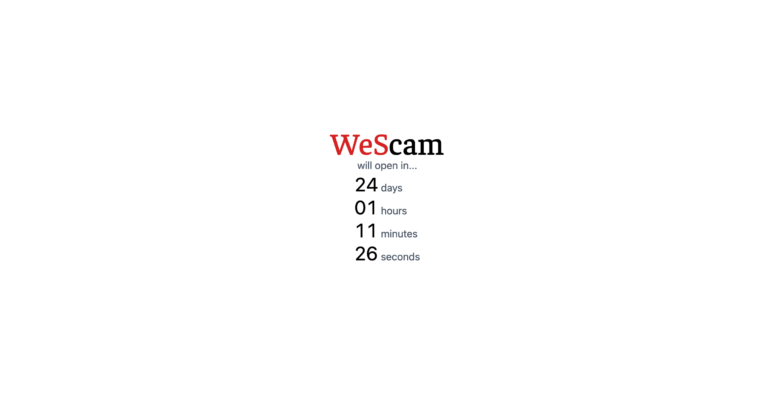
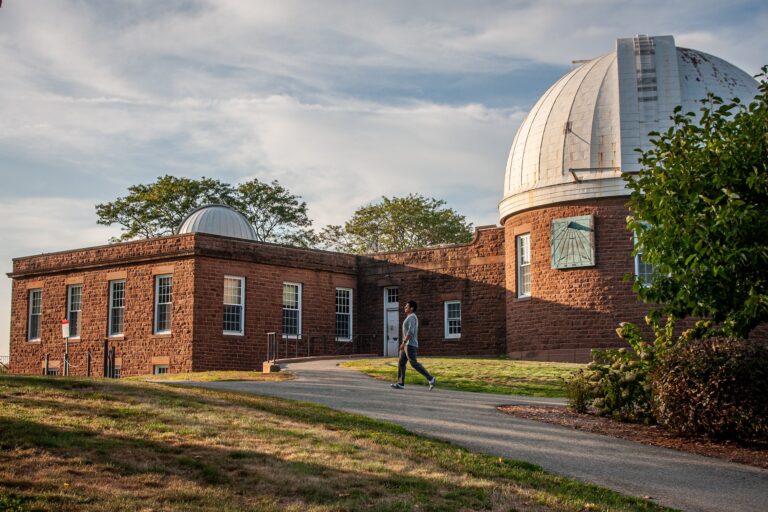
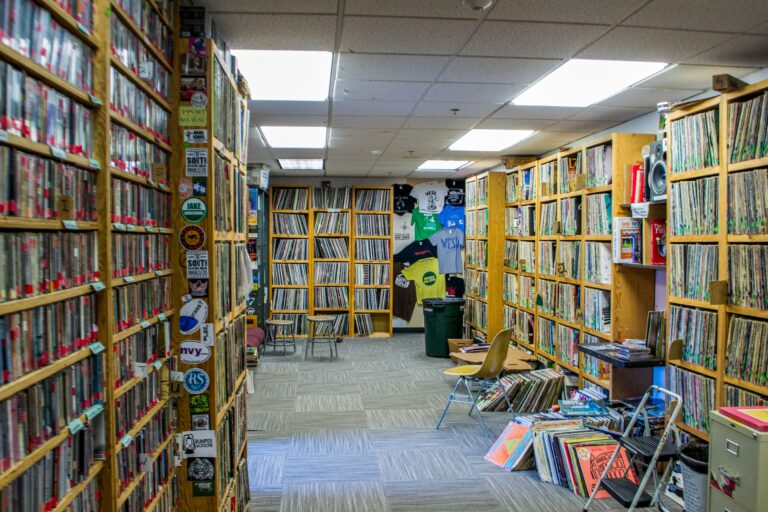
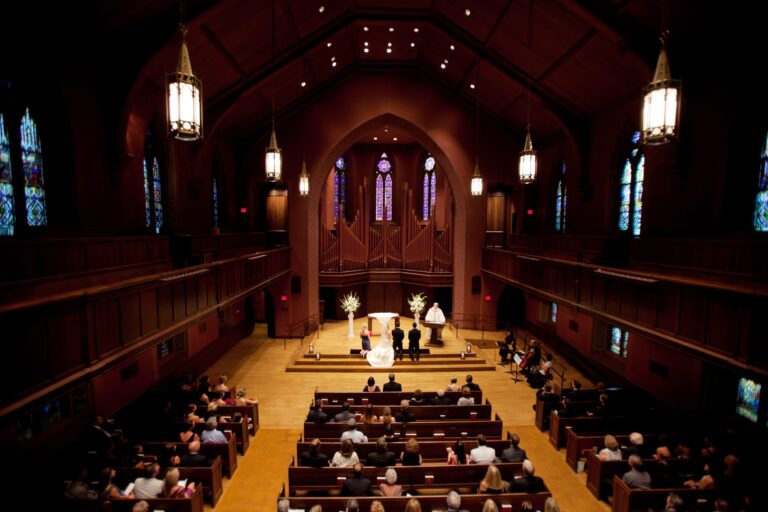
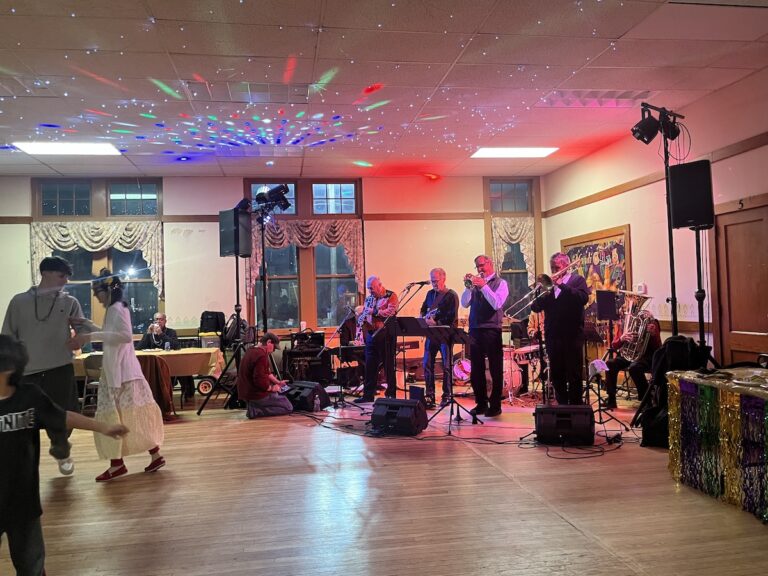

Leave a Reply